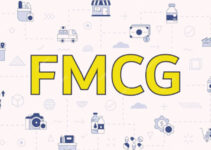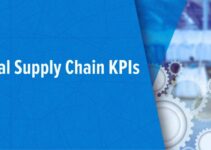The SCM of Nestle has established a broad network of suppliers and vendors in the food and beverage industry. The company deals with customers in the healthcare and cosmetic industry. Today, we’ll discuss Nestle supply chain management; its definition, and processes.
Key statistical facts and figures about Nestle are as follows;
- Nestle has a network of 340 factors in 77 countries across the world
- Approximately 275 employees are working for the company to manage its operations
- Selling products in 188 countries across the world
- Offers products in more than 2,000 different brand names
Some of the main products and services of Nestle are as follows;
- Milkshakes
- Ice creams
- Seasoning
- Chocolates
- Bottled water
- Pet food
- Sauce and soup
- Breakfast cereal
- Coffee
- Baby food and much more
What is Nestle Supply Chain Management?
Nestle supply chain management comprises of wide range of activities and processes ranging from sourcing of raw material, connecting with suppliers, production, manufacturing, sale, and transportation to distribution. From start to finish, every stage of Nestle SCM comprises companies and individuals and they collaborate with each other to make sure the following;
- Raw materials and supplies reach the company
- Processing valuable items
- Distributing finished goods to the end users.
Nestle has a strong commitment to maintaining quality standards and food safety. It is to make sure that the customers receive the high-quality goods that the company has produced for them by following the sustainable usage of resources.
Process of Nestle SCM
The SC team plays a key role throughout the supply chain process of the company. The team collaborates with suppliers, vendors, and farmers to make sure to source raw supplies and then satisfy the manufacturing and production requirements of the company. However, their objective is to balance the inventory level and satisfy the demands of the target customer market.
The SC team also has the obligation to ensure safe and sustainable storage for all the manufactured items. They analyze the delivery of products to customers through a wide network of retailers and logistical partners.
Some of the main steps involved in the process of Nestle supply chain management are as follows;
Material Sourcing
The procurement team of Nestle performs the first step of sourcing the raw supplies and materials for the company. The brand buys the needed and required materials and supplies directly from the farmers or farmer cooperatives. According to an estimate, Nestle collaborates with more than 4 million farmers and customers and contributes roundabout 1% of agricultural output.
Some main ingredients and raw supplies that the company purchases for the production of its finished goods are as follows;
- Hazelnuts
- Eggs
- Diary
- Coconut
- Coffee
- Cocoa
- Grains and cereal
- Vegetable
- Sugar
- Soya
- Spices
- Paper
- Pulp
- Palm oil
- Meat
- Seafood and fish
The procurement team of Nestle buys the raw materials and supplies with the commercial approach to decrease stockouts, avoid delays in the acquisition of resources, and offer quality.
Production & Manufacturing
Nestle performs its production and manufacturing process in different factories and they produce a wide range of products for more than 2000 brands of the company. For instance, the name of the cereal in Nigeria is Golden Morn, and Cerevita in Ghana.
The diverse production and manufacturing locations of Nestle for different would make sure that the company would have easy access to raw supplies and maintain the quality of finished to meet the required standards.
Distribution & Warehousing
Different 3rd party service-providing companies manage the logistics and warehousing processes of the company Nestle. This is because the company employs diverse production and manufacturing locations in different countries where the company has the selling market.
However, Nestle performs some of its logistics and warehousing processes in-house. Some of the main logistics and warehousing partners of the company are as follows;
- Kuehne + Nagel
- Fabeto Nigeria Limited
- DHL
- XPO Logistics
The abovementioned and other partners manage the logistics and warehousing of different products in various parts of the world. For instance, DHL manages the warehousing and distribution of Nescafe, MILO, Coffee Mate, and others in Taiwan, New Zealand, Thailand, Australia, Vietnam, Malaysia, Burma, and India.
Retail Stores & E-commerce
Online and retail stores come at the bottom of the SC process of Nestle and it is the stage where the customers would buy and consume the finished goods. Target and Walmart are some of the most common types of retail stores where the company sells its products. However, Nestle’s products are also available in different local and grocery stores and supermarkets in various countries worldwide.
Conclusion: Nestle Supply Chain Management
After an in-depth study of Nestle supply chain management; we have realized that Nestle is the world’s leading food and beverage brand with an efficient SC network. If you are learning about the Nestle SCM, then you should keep in mind the abovementioned process and elements.
Ahsan is an accomplished researcher and has a deep insight in worldly life affairs. He goes Live 3 days a week on various social media platforms. Other than research writing, he’s a very interesting person.


